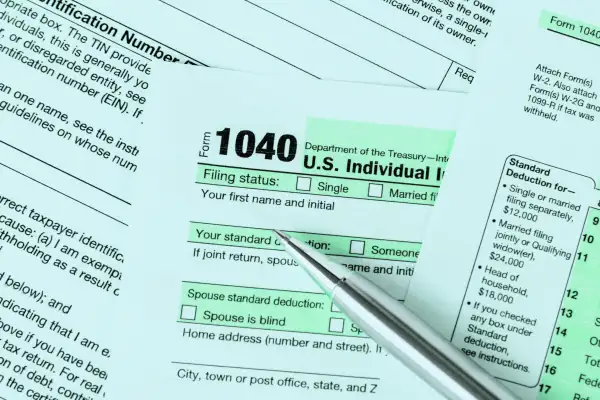If You Got an Extension on Filing Your 2019 Taxes, the Deadline Is Here

Look, we get it: 2020 has been stressful. It's hard to juggle a full schedule of washing your hands, worrying about the presidential election and taking deep breaths when your coworker yet again fumbles the Zoom mute button. Nobody would judge you for forgetting a pesky little thing like your taxes.
Except, you know, the IRS.
The 2020 tax extension deadline is Oct. 15 — this Thursday. Though the IRS pushed back the regular filing date from April 15 to July 15 due to the coronavirus pandemic, the government did not move the deadline for people who requested extra time. That means if you haven't filed your 2019 tax return yet, you need to get moving.
How to file your taxes for free
Americans are encouraged to do their taxes online "to support social distancing and speed the processing of tax returns, refunds and payments," according to the IRS.
The IRS Free File program, which lets people who make under $69,000 a year do their taxes for free through services like TaxSlayer and H&R Block, is available until midnight ET on Thursday. Free File Fillable Forms, intended for people who make over $69,000 and already know how to prepare their taxes, will be running through next Tuesday, Oct. 20.
How to get your tax refund faster
Filing statistics show that the IRS had received roughly 153 million returns as of late July. It had issued about 103 million refunds, with the average 2019 tax refund coming in at $2,741.
The quickest way to get your refund is to give the government your direct deposit, or bank account, information. The IRS vows that it's "simple, safe and secure," enabling it to issue some 90% of refunds in 21 days or less. (This is also the system used to distribute stimulus checks.) Read more about direct deposit here.
What happens if you don't file your taxes on time?
Though Tax Day was delayed this year, the payment deadline was not. The consequences depend on your individual circumstances.
If you owe money to the IRS and didn't receive an extension, you're likely on the hook for a "failure to file" penalty, which increased last month. It's typically 5% of the unpaid tax for each month that return is late, up to 25%. But because returns that were due July 15 are now more than 60 days late, the IRS will charge a minimum penalty of $435 or 100% of the unpaid tax (whichever is less).
That's on top of a "failure to pay" penalty plus interest.
If you did get an extension and you file by Oct. 15, thereby meeting the deadline, you only face that "failure to pay" penalty (and interest). More details can be found here.
If you file late but are supposed to receive a refund, you won't get charged. The IRS just won't give you the money until it either gets the return in question.
Does the Oct. 15 tax deadline have any exceptions?
There are a handful of taxpayers who aren't subject to the Oct. 15 due date. Specifically, people serving in military combat zones and those living in certain disaster zones have more time to file their taxes. For example, victims of Hurricane Sally and the Oregon wildfires have until Jan. 15.
But generally, if you haven't taken care of your 2019 federal income taxes, you should do so now.
More from Money:
Use This Formula to Make the Most of Your 2020 Refund
The IRS Is Mailing Letters to 9 Million People Who Never Claimed Their $1,200 Stimulus Checks
